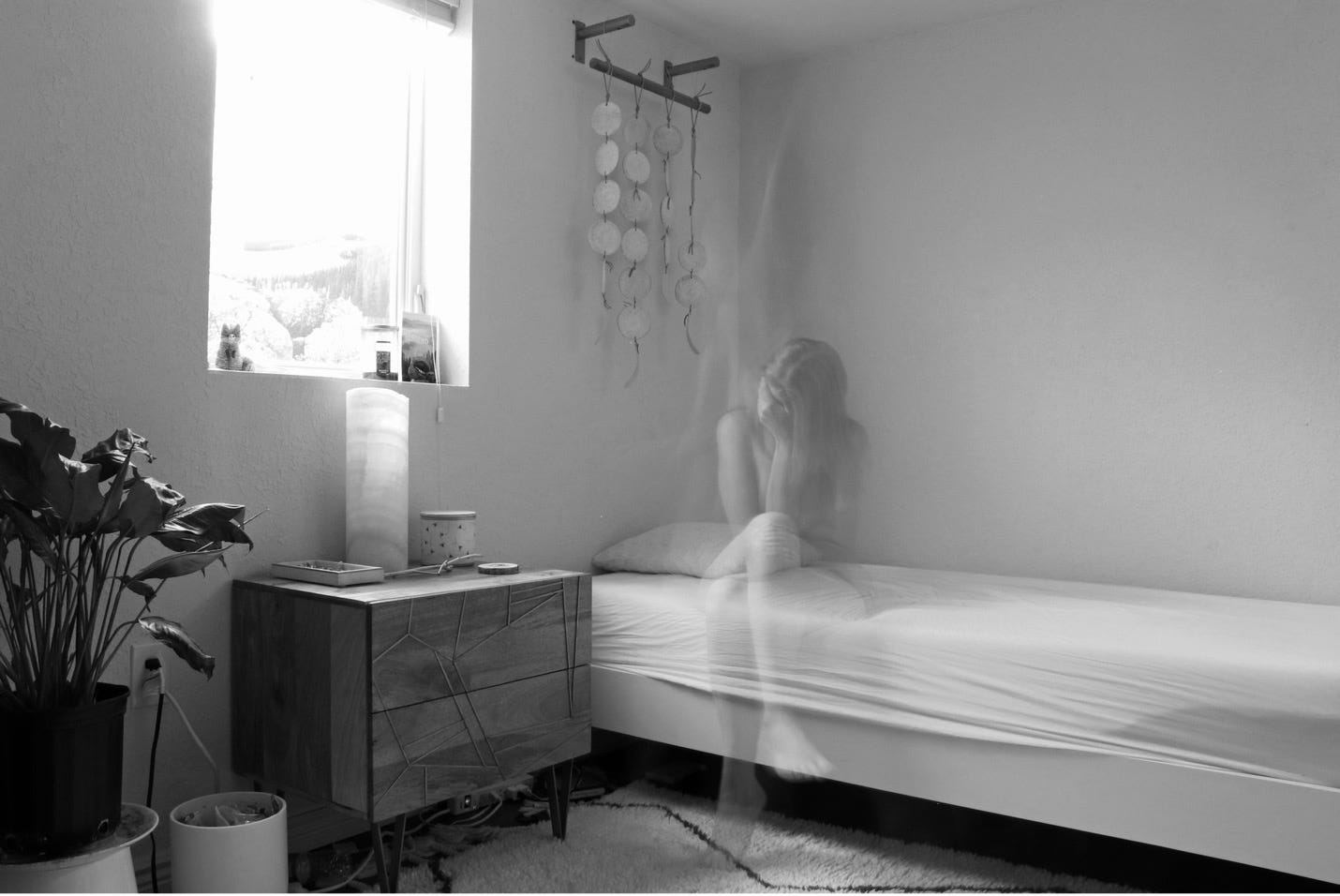Dear Reader,
A friend sent me a picture she had composed, and as we talked about her piece, a story sprang to mind. Thus, this month’s illustration is an original photograph by Abby Soucy, a woman of tremendous artistic gifts, and an even bigger heart.
In theme with our most recent Halloween, this month’s flash fiction is very dark.
You have been warned.
This month I am also sending out the last installment of “From The Loft” in the subscriber-access side of my free short-story newsletter. If you subscribe by December 4th, I will send you a complete copy of the just finished “From The Loft” series, a 140-page novella. A new episodic story, “Bohan the Mage,” starts this December, so subscribe now.
~Alive~
Odette was very cold. There was a cup on the nightstand, with a smudge of lipstick on the rim, where she had left it last night. Her subject had been docile. She’d met him in the café the previous evening. Even in wartime France, cafés were still open. It was one of the things she appreciated about the French, whether or not they’d allowed the Germans to invade and steal their country overnight.
Sergeant Belmont would have been proud at how she’d gathered information. The German said he was a corporal and Odette had been keeping tabs on him, suspecting he’d be useful.
He wasn’t here now. Where was he? He’d come back no doubt, but she hoped he didn’t.
A terror seized her at the thought, but she needed the information. A spur of patriotism had pushed her to join the army. For Queen and country and a quiet cup of tea untainted by anti-Semitism or communism. But it was her quiet nature that had drawn the attention. Her ability to fade into the background of a room. That, and her round eyes.
“Perfect,” Dennis had said.
Why was it so bloody cold? She should get a cup of tea, wrap herself in that scarf the German had bought her. But she felt so stiff, she didn’t want to get up. Was he coming back?
She’d solved Dennis’s puzzle, though he hadn’t announced it to her, and she was shipped off to MI6. There were more women there than she would have thought. Some were eye-catching, most were subdued, wall flowers. All saw more than they said.
The training was on memory, recall, signs, decoding, decorum, and manipulation of emotions. They had learned the nuances of French and German culture so that they might fit in and accurately read situations.
“Your job is information gathering. You are the heroes of this war who will never be acknowledged,” Belmont had said in training. “Your country thanks you. Your country will never know who you are. That’s how we keep you alive.”
“All these other girls are dull,” the German had said in broken French. “Not you, you see the importance of what we’re doing here.” Odette had smiled and looked away, demure. Emotional signal: a quiet French girl like me?
So, she had gone with him, insisting on a private room.
“Your job will put you in compromising situations,” Belmont had said. “Don’t be alone if you can avoid it.”
But they had needed the information, and she had played her part, alluring, playful. She had been in complete control until she wasn’t. He had strangled her with that scarf he bought her. That’s right, he had killed her. She remembered now. It had happened. He knew what she was, or maybe he hadn’t. That part was hazy since he had snarled something in German.
She sat up, and a chill went through her, like breaking the surface of a freezing river. Frost tore at her skin, rupturing some essential part at the core of her that had already gone dead and empty, like a husk.
She looked down on her body, lying on a mattress atop a white fitted sheet. There was nothing else, no quilt duvet to cover her form, a woman with long white limbs. The hollows under her eyes were pale blue, the shadow now a faded smudge on her lids. Her lips were like a bruise.
She touched her face, confusion settling on her as she did not feel the skin, did not feel the pulse of her own heart, or see the gentle rhythm in her chest where she should have been breathing. Her corpse lay prone as she looked down, perched on the side of the mattress. It looked so fragile.
“Don’t get caught,” Belmont had said.
The room was empty, barren. The German wasn’t coming back, Odette realized, and it didn’t matter—she understood now—if he did.
“What if I am caught?” Odette had asked Belmont.
“Remember why you took the job.”




